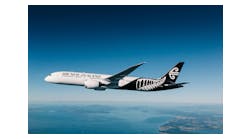The recent 'unbundling' of some services such as seat preferences or meals on board might be helping airlines to earn a lot of ancillary revenue, but the government is considering whether it could limit the number of 'preferred seats' on sale on each flight.
The Indian government has been prompted to step in just days after it announced unbundling of these services following reports that some airlines were charging for a very large number of seats, with one of them even imposing fees for the 'congested' middle seat, official sources said. They said the Indian Civil Aviation Ministry was now looking at framing rules to cap the number of preferential seats the carriers can offer in a flight. However, a decision would be taken only after the airlines revert to the Ministry with their proposals identifying such seats in about 10 days, they said. In 2010-11, when some Indian carriers had started pre-booking seats, the Directorate General of Civil Aviation (DGCA) had stepped in and issued a directive asking them to withdraw the charges ranging from Rs 50 to 400.
DGCA had in July 2011 asked all airlines "to withdraw such charges with immediate effect under intimation to this office. ... Any mention about the same on the website may also be deleted on an immediate basis." But the Indian Ministry has now allowed the airlines to impose additional fees for these services, with official sources saying the fliers should have the choice to book preferential seats. But the middle seat in an aircraft cannot be termed a preferential one, they said. They also favoured a cap on the number of preferential seats an airline can offer in a flight and said the aviation regulator could consider framing regulations on the matter in line with prevalent international norms.
While Air India and Jet Airways have reduced their free check-in baggage allowance from 20 kgs to 15 kgs, the latter has also started charging for selection of some 'privileged' seats upfront of the aircraft, as also those with more leg-space adjacent to the emergency exit. Even when the DGCA directive was in place, no-frill carrier IndiGo was offering a package, IndiGo Plus, in which a passenger could block a seat and get meals on board by making extra payment while booking a ticket.
The Indian government's decision on unbundling came about three weeks ago ahead of Air Asia India launching its operations. Its Malaysian parent company Air Asia is known to charge for seats, food, in-flight entertainment and also a convenience fee to subsidising cost of implementing and upgrading its online payment systems for more secure booking.
Copyright 2013 Plus Media Solutions Private LimitedAll Rights Reserved





